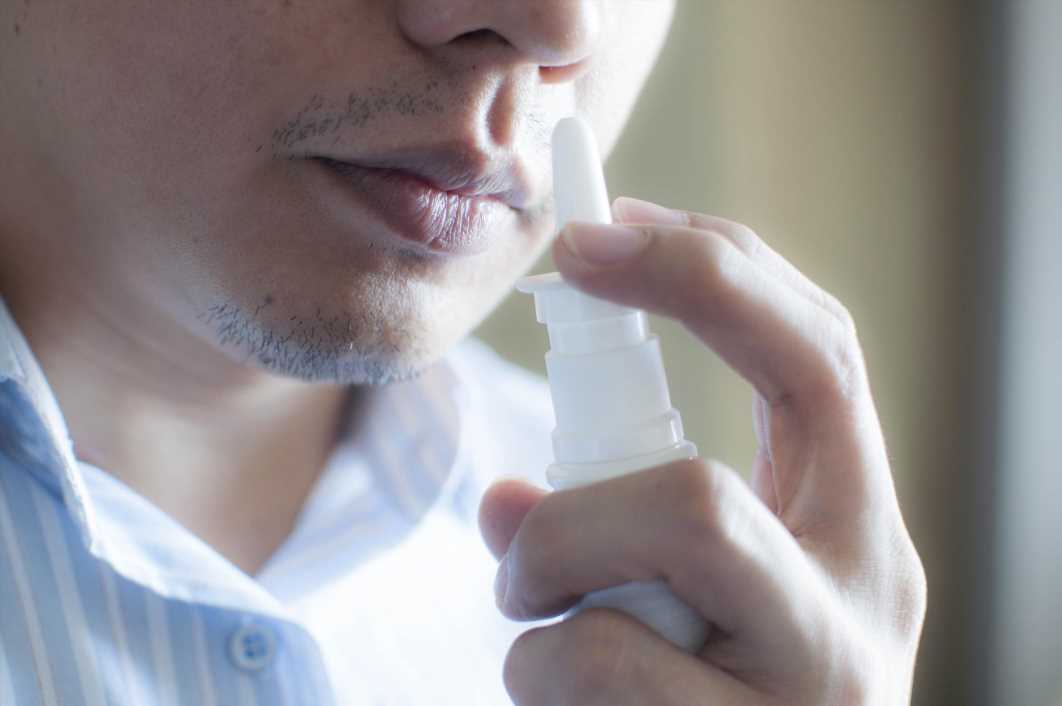A MAN suffered a killer lung infection after using a common menthol decongestant every day for years.
The 38-year-old had started using the nasal spray to help combat his seasonal allergies.
Decongestant nasal sprays are commonly used to provide short-term relief for a blocked or stuffy nose.
They are also used to ease the symptoms of allergies, which include sneezing and itchy red eyes.
The medicines are generally safe and should not be used for more than a week at a time, the NHS says.
But according to the medical report, the toiletry store owner inhaled the decongestant five to 20 times a day for more than two years.
Read more on allergies
I’m a weaning expert – here’s how to spot a deadly food allergy
From a cat allergy to an ingrown toenail, Dr Jeff answers your health questions
By May 2020, the man began to experience flu-like symptoms such as a temperature, a cough and a tight chest.
Writing in the BMC Pulmonary Medicine, medics from China, said they initially believed the man had community-acquired pneumonia – the most common form of the lung disease – and was treated and sent home.
But just days later his symptoms returned and after several tests revealed he was actually suffering with lipoid pneumonia a rare version of the illness.
The lung disease, which occurs when fat particles enter the lungs, can be deadly if not caught and treated quickly.
Most read in Health

Warning to pregnant mums taking common medication after link to birth defects

I was plagued by a strange burning smell – it turned out to be a silent killer

Full list of 15 groups that qualify for free prescriptions – are you eligible?

Brave Grace, 7, signs up to modelling agency while wearing prosthetic blade
The disease is becoming increasing more common among vapers.
On top of the lipoid pneumonia, doctors was also carrying a secondary infections, known as mycobacterium.
Mycobacteria are found in water and soil and are typically harmless
However, when they enter the body, they can cause skin lesions, soft tissue infections, and serious lung problems.
The report said the oil-containing nasal drops had accumulated in his lungs resulting in inflammation and lung damage.
And the infection was a rare complication of pneumonia.
The patient was advised to stop using the nasal sprays and take antibiotics to clear the infection.
Source: Read Full Article



